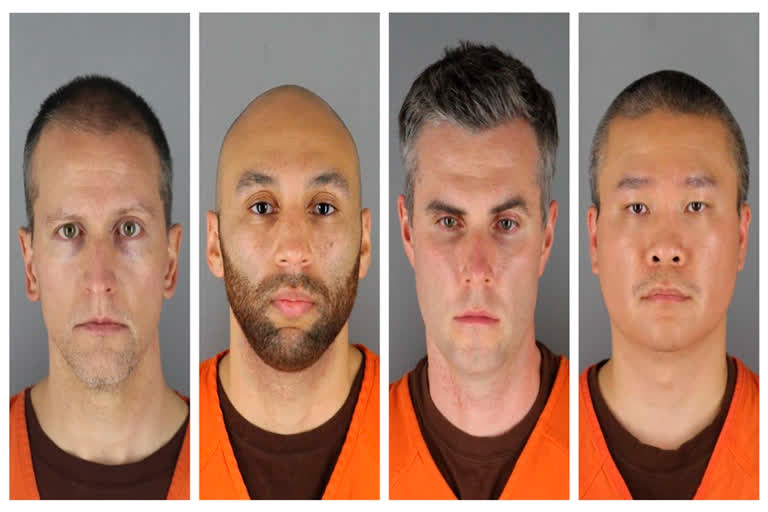Washington: Minneapolis was among several cities that had policies on the books requiring police officers to intervene to stop colleagues from using unreasonable force, but that didn't save George Floyd and law enforcement experts say such rules will always run up against entrenched police culture and the fear of being ostracized and branded a "rat."
Power dynamics may have been magnified in the Floyd case because two of the four officers involved were rookies and the most senior officer on the scene was a training officer, Derek Chauvin, a 19-year police veteran who was seen putting his knee on the back of the black man's neck despite his cries that he couldn't breathe.
Read also:'Black Lives Matter' protests mostly peaceful in Australia
Even though lawyers for the rookie officers say both men voiced their concerns about Chauvin's actions at the moment, they ultimately failed to stop him. Chauvin is now charged with second-degree murder, and his three fellow officers are charged with aiding and abetting.
"This is a lesson for every cop in America: If you see something that is wrong, you need to step in," said Joseph Giacalone, a former New York police sergeant who now teaches at the John Jay College of Criminal Justice. "There are a lot of gray areas in policing, but this was crystal clear. … You're better off being ostracized by the group than going to prison for murder."
Read also:Thousands protest for Floyd near the White House
Added Andrew Scott, a former Boca Raton, Florida, police chief who testifies in use-of-force cases: "They're suffering the effects of an organizational culture that doesn't allow that or reward that behavior. The fraternity of law enforcement is a tight fraternity and fraternities have a group think."Attorneys for the two rookies, Thomas Lane and J. Alexander Kueng, emphasized their place in police hierarchy in the now-fired officers' initial court appearance this past week. They noted both were on just their fourth day as full-fledged cops at the time of Floyd's May 25 arrest, while Chauvin was an authority figure as a designated training officer for new cops.
"They're required to call him 'Sir,'" Lane's attorney, Earl Gray, told the judge. "He has 20 years' experience. What is my client supposed to do but to follow what the training officer said? Is that aiding and abetting a crime?"
Gray noted that Lane questioned Chauvin's actions during the arrest, and Kueng's lawyer Thomas Plunkett said his client told fellow cops, "You shouldn't be doing this."
But according to the criminal complaints that detailed Floyd's arrest on suspicion of passing a counterfeit bill, the officers didn't back up their words with actions.
Lane held Floyd's legs and Kueng held his back while Chauvin placed his knee on Floyd's head and neck. That's when Floyd repeatedly said "I can't breathe, "Mama" and "please." At one point, Floyd said, "I'm about to die." Nevertheless, Chauvin, Lane and Kueng didn't move. And a fourth officer, Tou Thao, continued standing nearby keeping onlookers back.
Moments later, Lane asked, "should we roll him on his side?" Chauvin replied: "No, staying put where we got him." Lane said he was worried Floyd would experience excited delirium, a condition in which a person can become agitated and aggressive or suddenly die, according to the documents.
"That's why we have him on his stomach," Chauvin replied.
